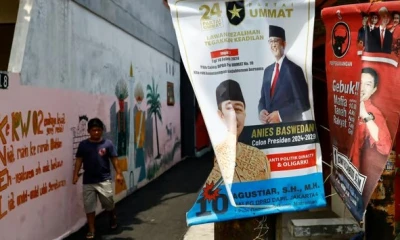Indonesia’s all three presidential candidates, targeting to garner votes of youth, in the upcoming February 14 election have turned to TikTok, a popular short video app boasting 125 million users in the country, second only to the United States.
At the forefront of this digital campaign plan is 22-year-old voter Irene Putri Aisyah, who captures and shares multitude of moments from presidential campaign events on TikTok, ranging from cute dances to cooking demonstrations.
However, experts caution while TikTok provides a platform for engagement, it’s rife with problematic content aiming to sway young voters, who make up a significant portion of Indonesia’s over 205 million registered voters.
One candidate, Prabowo Subianto, formerly known for his military background, has undergone a rebranding effort, presenting himself as a more approachable figure. Videos displaying his awkward dance moves, reminiscent of local martial arts, have garnered millions of views, inspiring emulation among users.
In response to attacks from opponents during televised debates, Prabowo’s supporters, specifically women, have shared emotional videos of themselves expressing support, contributing to his image-building efforts.
Rivals Anies Baswedan and Ganjar Pranowo have increased their presence on TikTok, engaging with voters through live Q&A sessions and sharing heartfelt encounters with their constituents.
Researcher Anita Wahid, collaborating with TikTok on trust and safety issues, asserted upon the platform’s influence among first-time voters, highlighting its role in disseminating election-related information.
Despite its popularity, concerns have been raised about the accuracy of content on TikTok. Endah Triastuti, a communications researcher at the University of Indonesia, notes that misinformation could mislead young voters, citing instances where crucial information about candidates, such as Prabowo’s alleged involvement in human rights abuses, may be obscured.
Additionally, manipulated images and ‘deepfake’ videos of candidates have circulated widely, further complicating the genuine information dissemination.
Responding to these concerns, TikTok has stated its commitment to combating misinformation, employing fact-checkers to identify and debunk false claims. The platform prohibits political ads and fundraising activities to safeguard the integrity of elections.
Anita Wahid underscores the preference of young voters for engaging and entertaining content on TikTok, highlighting its significance as a battleground for the current election.

















